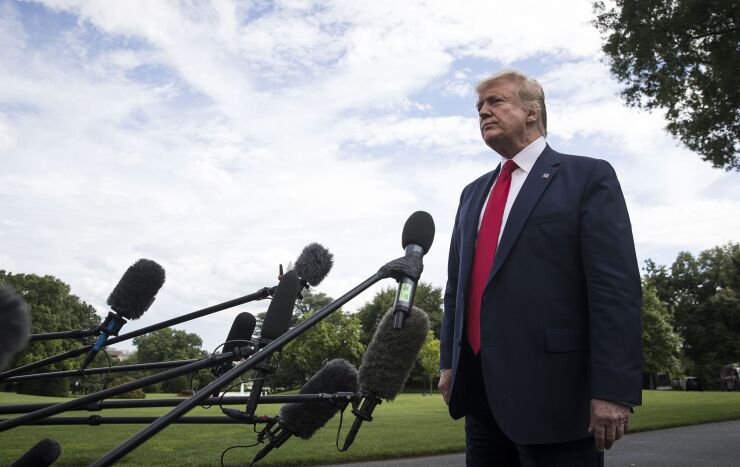The Internal Revenue Service issued
Trump’s tax law eliminated the deduction for so-called entertainment expenses — golf outings, cruises and concert tickets, although it left in place a 50 percent break for business meals. The rules out on Wednesday finalize implementation of the 2017 legislation, specifying how accountants should define client meals.
The 2017 tax law “generally eliminated the deduction for any expenses related to activities generally considered entertainment, amusement or recreation,” the IRS said in a statement on the regulations. “However, taxpayers may still deduct business expenses related to food and beverages if certain requirements are met.”

This year, Trump, whose holdings include resorts and golf courses, said he wants to reverse that portion of his signature tax law, and allow businesses to fully write off those costs as a way to help restaurants, concert venues and sports teams struggling as a result of the ongoing pandemic.
“Congress must pass the old, and very strongly proven, deductibility by businesses on restaurants and entertainment,” Trump said in a tweet in April. “This will bring restaurants, and everything related, back — and stronger than ever. Move quickly, they will all be saved!”
Congress would need to vote to make that change, something that is unlikely since neither Democratic nor Republican leaders in the Capitol have embraced the idea. Some have argued it would do little to spur economic activity, because most sporting events are closed to fans, concert halls have largely been shuttered amid social distancing guidelines and few businesses are conducting face-to-face meetings with clients.
Hors d’oeuvres
The final rules largely adopt a proposed version from February that clarified meals are still eligible for a 50 percent deduction if they occur during an entertainment event — as long as receipts separately itemize their cost.
Deductions aren’t permitted if expenses for food and drink and entertainment aren’t separate, the rules said. Additionally, only meals are deductible; drinks and hors d’oeuvres at entertainment events aren’t.
The 2017 change to restrict the deduction is expected to raise about $23.5 billion over a decade for the federal government.





